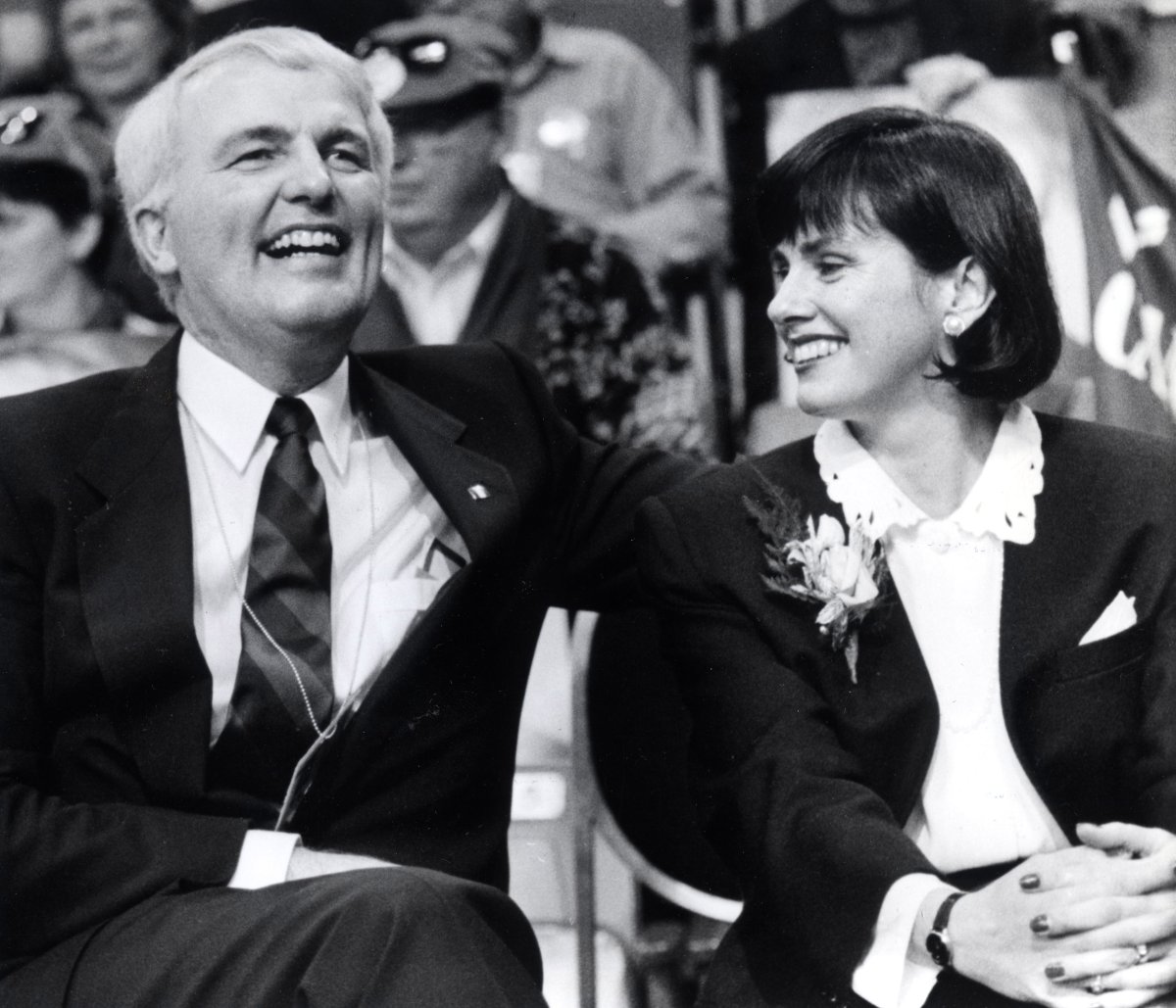Raised on a farm in Nova Scotia’s Pictou County, Donald Cameron’s rural roots were a source of pride for a man who in 1991 would become the province’s 22nd premier.

An avowed deficit-fighter who pledged to rid the province of patronage, Cameron died Monday at the age of 74.
“He loved Nova Scotia, and during his time in public and private life, Donnie was a man of incredible integrity,” Tim Houston, leader of the Nova Scotia Progressive Conservative party, said in statement.
READ MORE: Right premier, wrong Cameron in think-tank’s ranking of Canadian premiers
Houston said Cameron’s one-term government introduced pioneering human rights legislation that called for equal rights for gay and lesbian people.
“Donnie represented Pictou East, as I do now, and he was a mentor to me in many ways,” said Houston. “But more than that, he was a treasured friend.”
Born in Egerton, N.S., Cameron was raised on a family farm and later graduated with a bachelor of science degree from McGill University in Montreal in 1968. When he returned to Nova Scotia, he converted the farm into a dairy operation and would proudly describe himself as a shy farm boy from a deeply rural corner of the province.
“I went to school and went home and did my chores. I never took part in sports or anything,” Cameron, a church-going Presbyterian, said in an interview with The Canadian Press in February 1991.

He married Rosemary Simpson in 1969 and they had three children: Natalie, David and Christine.
First elected to the Nova Scotia legislature 1974, he was never defeated in Pictou East. He held a handful of cabinet posts, including the fisheries and industry portfolios. And on Feb. 9, 1991, he won the leadership of the Tory party after three ballots, replacing the scandal-plagued John Buchanan as premier.
Cameron campaigned on a platform that promised to reduce the province’s budgetary deficit and to shrink the government’s firmly entrenched system of patronage, a pledge that would come to define his career in politics.
He advocated merit-based hiring practices, but he made it clear patronage would not disappear entirely. If two applicants had the same qualifications, the Conservative would get the job, he said at the time.
Under his leadership, the Tories tabled a budget that raised the cost of prescription drugs for seniors, froze provincial wages for two years and eliminated 300 public service jobs.
Cameron’s government was swept from power by the Liberals under John Savage on May 25, 1993. The silver-haired politician retired from politics that night.
In June 1993, then prime minister Brian Mulroney appointed Cameron to serve as consul general in Boston. Cameron had supported Mulroney’s failed 1992 bid to get Quebec to sign the Constitution through the Charlottetown accord.
This report by The Canadian Press was first published May 3, 2021.
- What is a halal mortgage? How interest-free home financing works in Canada
- Capital gains changes are ‘really fair,’ Freeland says, as doctors cry foul
- Ontario doctors offer solutions to help address shortage of family physicians
- Budget 2024 failed to spark ‘political reboot’ for Liberals, polling suggests



Comments